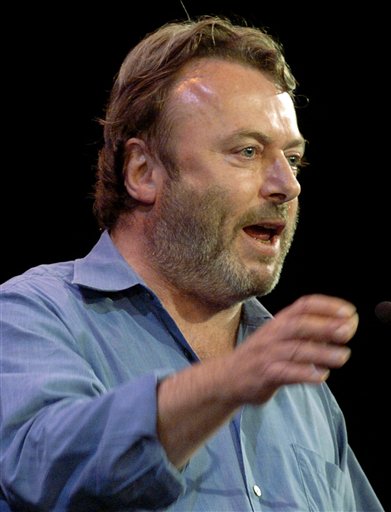Christopher Hitchens’ guide to dying
By Al Gini

Christopher Hitchens’ guide to dying
By Al Gini
As an essayist and columnist Christopher Hitchens was omnivorous. He wrote on anything and everything that piqued his curiosity. He commented, critiqued and satirized poetry, politics, politicians, popular culture, media personalities and religion. Nothing was safe from his scrutiny.
And so, of course, when he was suddenly faced with the great “mystery of mysteries,” his own pending death from esophageal cancer, he dealt with is the way he dealt with all of life — he wrote about it. The result of his efforts is recently-released Mortality, a slim volume of seven essays that chronicle his 18-month end-of-life journey through “Tumorville.” (There is an eighth chapter, but it is made up of fragments and notes that he jotted down in his last days.)
There’s an old military saying: “There are no atheists in foxholes.” That’s when the bullets and bombs start to fly, and saying goes, and everybody believes in God. But Hitchens wrote a best-selling book denying the existence of God (God is Not Good) and didn’t change his tune as his “vulgar little tumor” took his life. Was he sad about dying? Of course. Did he “desperately” want to live? Doesn’t everyone? Was he angry about facing the end? Absolutely. But did he take it personally? Did he wonder “why me?” No, never. In his “year of living dyingly,” he understood and accepted that the “alien tumor that was burrowing into me” was not a personal affront, but just a fact of life. It was malignant tumor. It was “single-mindedly” doing what it was supposed to do to him. It was spreading though his body and killing him.
Although he didn’t want to die and although he sought out the best medical help possible Hitchens’ prose clearly conveys his conviction that his death was neither tragic or unique. Bad things happen in life and it was happening to him. He did not want it. He did not like it. But he refused to wallow in self-pity and lament the ultimate absurdity of exsistence. Rather at the end he took time to remember the importance of love, the importance of relationships; and the joys of the mind.
I have been an admirer of Hitchens, but never a major fan. I thought some of his arguments and writings too slick, too polished, too cleaver. But after reading Mortality, my admiration for him has grown. He faced death with dignity and grace. And whether or not you believe in God and an after-life, his was a “good death” — one worthy of emulating.
Al Gini is a Professor of Business Ethics and Chairman of the Management Department in the Quinlan School of Business at Loyola University Chicago.